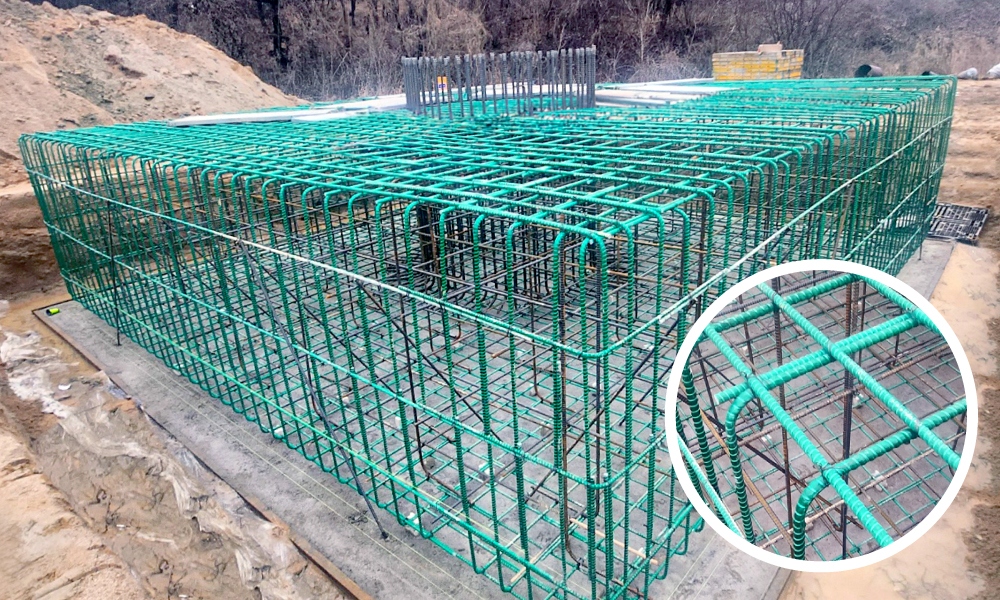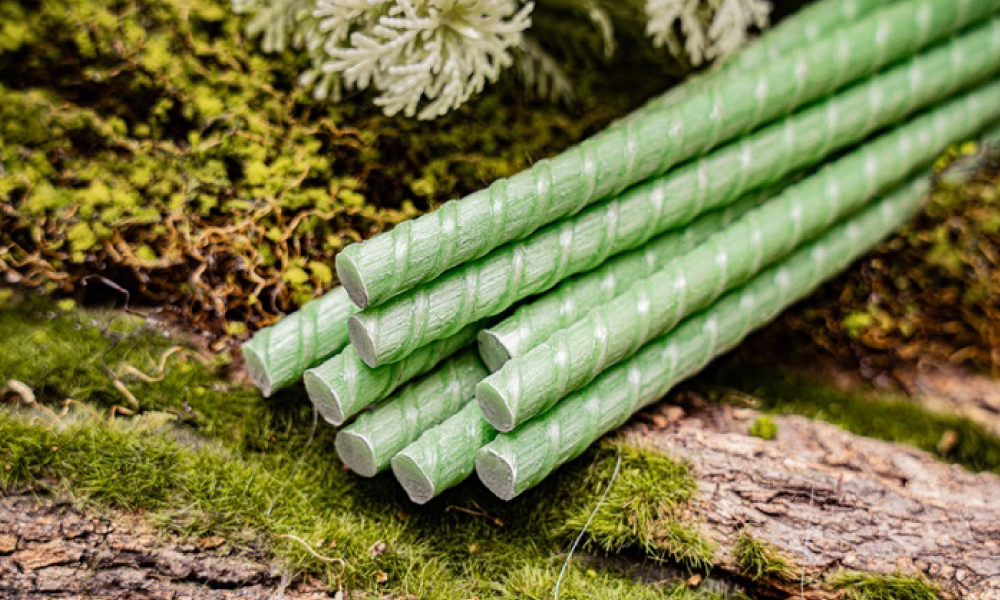[Korea Economic Daily] GFRP Emerges as Eco-Friendly Alternative to Steel Rebar
2025.04.25
— Twice the strength at a fraction of the weight
— KCMT recognized as the largest domestic producer
— Annual production capacity reaches 300,000 tons

Image: KCMT's GFRP rebar used in bridge pier foundations / Courtesy of KCMT
Interest is growing in Glass Fiber Reinforced Polymer (GFRP) rebar, an eco-friendly alternative to conventional steel reinforcement.
GFRP is a composite material made by combining glass fiber with polymer resin. It boasts lightweight, high strength, excellent resistance to corrosion, and significantly lower carbon emissions compared to traditional steel rebar—making it suitable for use across a range of industries, especially construction.
According to industry sources on April 24, Dongkuk Steel recently shipped its new GFRP product, DK Green Bar, to Sunwoo Steel, marking its first official sale. DK Green Bar weighs only about 25% of traditional SD400 rebar but is over twice as strong. Its non-corrosive and non-conductive properties make it ideal for long-lasting infrastructure. Notably, its carbon emissions during production are estimated to be 67% lower than those of steel rebar.

Image: GFRP rebar from Dongkuk Steel / Courtesy of Dongkuk Steel
GFRP is already widely adopted in advanced markets like the U.S. and Europe. A Dongkuk Steel representative commented, “Although the volume is still small, this first shipment is meaningful as a starting point.”
Sunwoo Steel plans to use the product for expanding the flooring at its plant in Cheongna, South Korea.
Currently, domestic production is led by smaller manufacturers like GFMT and Dongsin Materials, but KCMT (CEO Junyoung Kim) is recognized as the largest producer in the country. KCMT developed GFRP using recycled PET bottles in 2023 and succeeded in mass production. Last year, the product was officially registered as an innovative procurement item by the Public Procurement Service.
KCMT’s plant in Ulsan is now equipped with facilities to produce up to 300,000 tons of GFRP rebar annually. A company spokesperson noted that their GFRP is primarily used for export to the U.S. and in domestic infrastructure projects such as bridges.
KCMT’s GFRP has already been used in major public works including:
-
Section 1 of the Pohang–Yeongdeok Expressway (Korea Expressway Corporation)
-
Section 1 of the Bujeon–Masan railway concrete track bed (National Railroad Authority)
The KCMT spokesperson added, “The Korea Expressway Corporation even developed a temporary design and construction guideline specifically for GFRP rebar—proof of its exceptional quality.”
As interest in GFRP grows in Korea, government-led regulatory changes are also taking place. In December 2024, the Ministry of Land, Infrastructure and Transport introduced new design standards for GFRP-reinforced concrete structures, addressing a long-standing gap in regulatory support that had hindered GFRP adoption.
"With these standards in place, GFRP can now be used in building construction as well,” said a KCMT official. “Although GFRP costs nearly twice as much as conventional rebar, we're offering it at a lower price to help establish the market."
A Dongkuk Steel representative added, “Since it doesn’t corrode, GFRP doesn’t need replacement as long as the structure stands. And when it’s finally dismantled, it can be crushed and reused as a cement additive—making it a truly sustainable product. For now, we’ll continue selling it at a competitive price to help grow the market."














